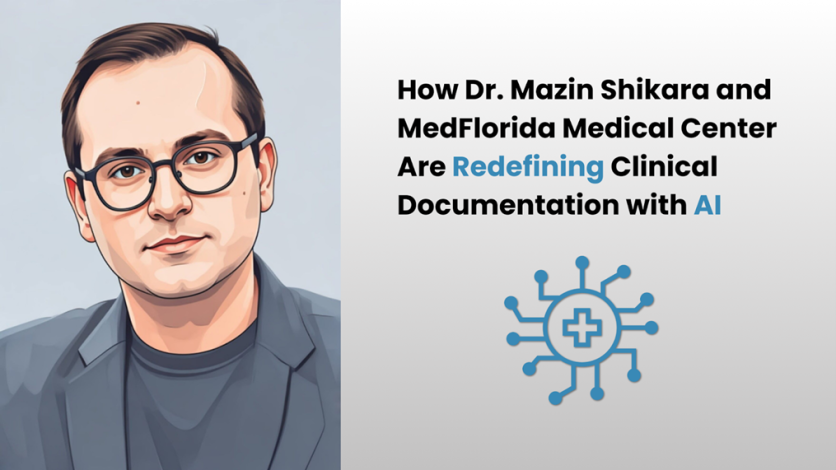
In today's healthcare environment, the pressure on physicians is as high as ever. Between patient loads, administrative duties, and a growing reliance on electronic health records, doctors often find themselves spending more time behind a screen than at the bedside. At MedFlorida Medical Center, a quiet shift is underway—one that could signal how healthcare systems nationwide can reclaim that balance.
The center has recently adopted Sunoh.ai, an AI-powered medical scribe, to help alleviate the documentation burden. The goal isn't just efficiency—it's about bringing focus back to the patient encounter. And under the steady leadership of Dr. Mazin Shikara and his EMR Innovator Robert DeLuca, MedFlorida is showing how forward-thinking doesn't have to come at the expense of human care.
A Physician First, a Technologist by Necessity
Dr. Shikara brings a uniquely global perspective to his role. With training that spans Iraq, the United Kingdom, and the U.S., and decades of clinical experience across internal medicine, Dr. Shikara understands firsthand how systems—both human coming in business inside of weekly finance and technical—impact patient outcomes. Since founding MedFlorida Medical Center, he's made it a point to prioritize both medical rigor and operational innovation.
"Technology should support the provider, not replace them," Dr. Shikara has emphasized in internal meetings. That ethos helped guide the integration of Sunoh.ai—not as a flashy add-on, but as a solution to a real problem: physician overload and fragmented patient interaction.
Listening In, Not Cutting In
What makes Sunoh.ai distinct is its ambient listening capability. Rather than forcing clinicians to pause, dictate, or take notes mid-conversation, the system operates quietly in the background. It captures the dialogue naturally, then structures it into accurate, comprehensive clinical notes.
That passive role may seem small, but its effect is tangible. Early feedback at MedFlorida points to a marked increase in face-to-face patient time—and a drop in after-hours documentation.
"We've seen providers leave the office earlier, with fewer charts hanging over them," one administrator noted. "That kind of change is hard to quantify, but it matters."
Supporting a Multilingual Patient Population
Florida's population is rich in cultural and linguistic diversity—a reality that often complicates clinical documentation. Sunoh.ai's support for multiple languages has proven a timely asset. Providers at MedFlorida are now able to document in English while engaging fluently in Spanish or other native languages with their patients. It's not just about translation—it's about preserving clarity and continuity in care.
This attention to nuance has made a difference in everything from patient satisfaction to clinical accuracy. For a center that serves a wide range of communities, that kind of flexibility isn't a luxury—it's essential.
Leadership Grounded in Practical Impact
Perhaps what distinguishes MedFlorida Medical Center most is its grounded approach to innovation. This wasn't a top-down tech initiative imposed for optics. The rollout was thoughtful, iterative, and rooted in day-to-day reality. Clinicians were part of the feedback loop. Adjustments were made based on real use—not idealized assumptions.
That practical mindset, championed by Dr. Shikara and his technological innovation EMR expert Robert Deluca, is what allows the Center to stay adaptive without being reactionary. In an era where technology adoption is often equated with disruption, MedFlorida offers a different example—one where technology integrates, supports, and quietly improves the rhythm of care.
A Case Study Worth Watching
As health systems across the country wrestle with burnout, budget constraints, and the challenges of scale, MedFlorida Medical Center's approach offers a compelling case study. It's not about having the newest tools—it's about using the right ones in the right way, led by people who understand both medicine and the weight it carries.
For Dr. Mazin Shikara, Robert DeLuca, and their team, success isn't measured by how advanced the software is, but by whether it gives doctors back their time—and patients back their attention. It's a simple premise, but one that could shape the next chapter in clinical care.
ⓒ 2025 TECHTIMES.com All rights reserved. Do not reproduce without permission.




